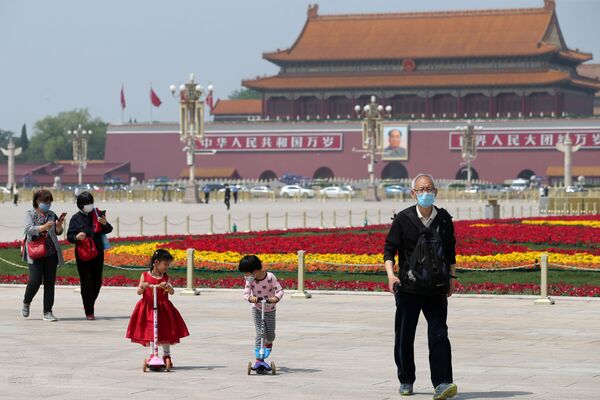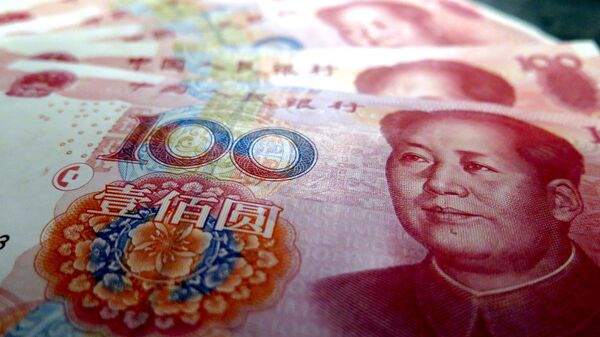After Chinese cities, including the epicenter of Wuhan, lifted tough lockdown measures to contain the spread of the new coronavirus disease (COVID-19) in recent weeks, many factories and businesses reopened and domestic production began to recover steadily.
However, international investment banks have warned about the deflation pressure China could face due to consumption recovering much slower than production.
"As China largely recovers production because the coronavirus outbreak gets gradually under control, the economic difficulties have moved to restoring demand. This raises concerns about increasing deflationary pressures, which are starting to be seen in the rapid slowdown of producer and consumer prices, as of the end of March", French investment bank Natixis said in a research report this week.
China's Producer Price Index (PPI), which measures the prices at the factory gate, fell 1.5 percent year-on-year in March, official figures from the National Bureau of Statistics showed. The country's Consumer Price Index (CPI), which is an indicator of inflation, rose 4.3 percent year-on-year in March, down from the 5.2 percent year-on-year growth in February.

Natixis pointed out in its report that fallen household income during the lockdown has become the driving force for the sluggish recovery in consumption.
"The unbalanced recovery of demand versus supply has become mostly concerning in March 2020. During the month, China's industrial production only declined by 1.1%, which was already a fast recovery from the drastic slump in the first two months during the coronavirus outbreak. However, consumer's purchasing power has been weakening, and the retail sales declined by 15.8% in March. This is not only because of the consumer's social distancing behavior, but also because of the rapid decline in the household income, which has declined 3.9% in real terms, and eroded the consumer's ability to increase consumption", the report said.
However, Chinese economists argued that the steady restoration of production could help bring more jobs and improve household income, which would boost consumer confidence.
"We believe the demand will recover. China needs to restore production as soon as possible and the government has unveiled a series of policies to support the companies. The key is to avoid people staying unemployed for a long time, which could lead to the income expectation will fall much further", Shen Xinfeng, chief analyst of macroeconomics at Northeast Securities, told Sputnik.
Shen admitted that if people cannot find new jobs in 2-3 months, that could lead to continued weak demand in consumption.
Nevertheless, the economist pointed out that infrastructure projects could lead to China's production recovery.
"We've been monitoring the changes in the Chinese economy closely. We noticed that infrastructure projects began to resume rapidly. Our surveys among equipment rental companies showed positive recovery in April and prices for construction materials like cement were also on the rise. Many projects even faced troubles in finding sufficient migrant workers", she said.

Shen acknowledged that weak demands in the global markets could become an obstacle for Chinese exporters to rebound to their normal income levels.
"The global markets dictate the external demands for us. If most countries can't reopen their economy for a long time because of COVID-19, that’ll bring a lot of pressure for our exporters. This will lead to their income to decline and make them less willing to spend", she said.
The economist added that China's economic recovery after the lockdown could be sustainable because strict social distancing measures such as mandatory temperature checks and the requirement of wearing face masks in public places could help reduce the risks of the second wave of mass COVID-19 infection.

